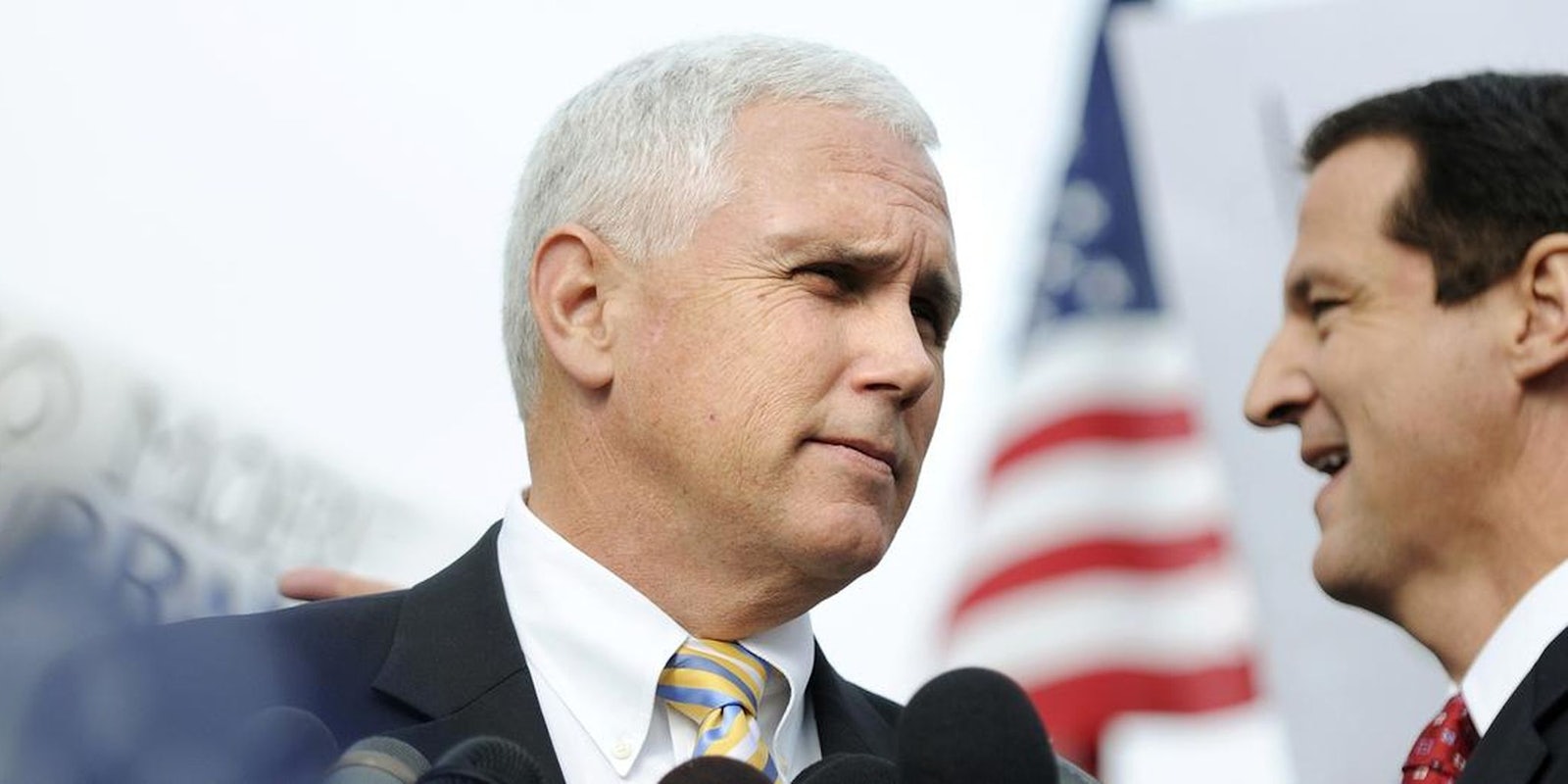U.S. officials are crawling out of the woodwork to tell reporters tales of collusion and deceit emanating from the White House.
For nearly two weeks, we’re told, the White House kept secret a lie that allegedly originated with Michael Flynn, the president’s top security adviser. The lie was told to Vice President Mike Pence—who then promptly made it viral during back-to-back interviews on a slew of Sunday news programs.
But new reports that emerged Wednesday night, first from the New York Times and soon after at CNN, offer a bigger picture—one that puts Pence at the heart of another lie.
A month ago, Face the Nation host John Dickerson offered the former Indiana governor the opportunity to clear the air: “Just to button up one question,” Dickerson said, “Did any adviser or anybody in the Trump campaign have any contact with the Russians who were trying to meddle in the election?”
“Of course not,” replied Pence. “And I think to suggest that is to give credence to some of these bizarre rumors that have swirled around the candidacy.”
But on Tuesday night, Pence’s story took two major blows to its credibility.
For starters, President Trump’s campaign was in regular contact with the Kremlin, according to the New York Times. The newspaper cited four current and former U.S. officials, who were each granted anonymity to discuss a classified topic.
With its own sources, CNN followed up on Tuesday reporting that “high-level advisers” to Trump were in “constant communication” with Russian nationals during the campaign. While CNN appears not to say “constant” conversations were with specifically Russian officials, its sources did confirm exchanges between Trump aides and the Kremlin were intercepted during “routine intelligence collection targeting Russian officials.”
So, according to CNN, the Trump campaign routinely communicated with Russian nationals, who were in some cases working directly for the Kremlin.
The bigger question now is whether Pence was aware Trump advisers were dialing Moscow throughout his campaign.
Pence’s response to Dickerson would not be considered false if one merely dismisses offhand the allegation that Russia meddled in the election. But this is no longer even disputed by the White House.
Trump himself acknowledged Russia’s culpability in early January—importantly, this occurred before Pence’s Face the Nation interview—falling back from his previous position that blaming Russia was a distraction. Trump began arguing instead that Russia was not motivated to aid his campaign specifically, as much as it was out to cause chaos.
Pence’s claim that no one in the “Trump campaign” had “any contact with the Russians who were trying to meddle in the election” therefore, remains suspicious. He made the assertion after the White House had accepted Russia’s election interference as a reality.
And while Russia has continued to deny it that spoke with Flynn about sanctions—putting its claim at odds with that of the White House—Russia has not denied communicating with Flynn during the campaign.
In fact, Russian Ambassador Sergey Kislyak told the Washington Post this week that he spoke with Flynn both before, during, and after the election. And the nature of Kislyak’s job is to be a channel to and from the Kremlin.
Prior to Pence’s interview, the White House had accepted the Kremlin’s role in the election hacks. And the Kremlin admits, prior to the U.S. election, that its ambassador spoke with Flynn, whose ties to the Trump campaign extend back as far as February 2016.
An article in the Post on Wednesday morning began: “For nearly two full weeks, nobody told Vice President Pence that he had been misled by national security adviser Michael Flynn.” But if Pence’s false remarks are to be attributed to mistakenly repeating the lies of another, then two weeks doesn’t cut the mustard.
The bigger question now is whether Pence was aware high-level Trump advisers were dialing Moscow throughout his campaign.
The White House did not respond to a request for comment.


